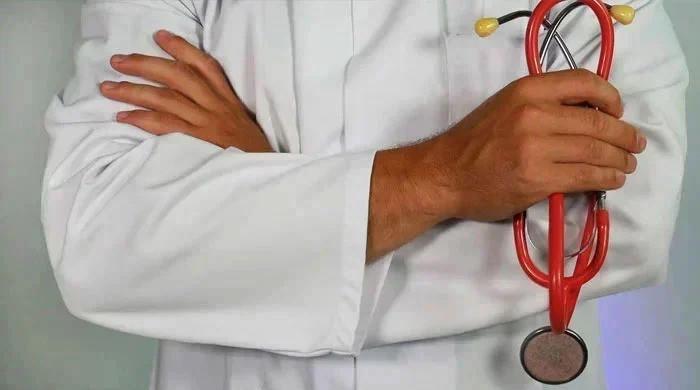
The Shift from Mobile Phones to Pagers in Punjab Hospitals: A New Era of Communication
In a significant move towards enhancing the efficiency and professionalism of healthcare services, the Punjab government has implemented a ban on mobile phone usage among hospital staff below the BPS-18 grade during duty hours. This decision, aimed at improving patient care and minimizing distractions, mandates the use of pagers as a primary communication tool within public sector hospitals across the province.
Understanding the Context: Why the Change?
The healthcare sector is one of the busiest environments, where timely communication can be the difference between life and death. With the increasing reliance on mobile phones, it has become common to see healthcare professionals engrossed in personal calls or messages, which can disrupt the focus needed for patient care. Recognizing this issue, the Punjab government has taken a proactive approach to ensure that medical staff remain attentive to their responsibilities.
The decision to replace mobile phones with pagers is not merely about restricting access to technology; rather, it is about fostering an environment where healthcare professionals can concentrate on their duties without the constant distraction of personal communications.
The Advantages of Using Pagers in Healthcare Settings
1. Enhanced Focus on Patient Care
One of the primary benefits of using pagers instead of mobile phones is the reduction of distractions. Pagers allow healthcare professionals to receive important messages without the allure of social media notifications or personal calls. This can lead to improved focus on patient care, as medical staff can respond to urgent situations without the interruptions common with mobile phone usage.
2. Reliability in Communication
Pagers are known for their reliability, especially in environments where mobile connectivity may be inconsistent. In many hospitals, the reception for mobile networks can be spotty, leading to missed calls or delayed responses. Pagers, on the other hand, operate on a different frequency, ensuring that critical messages are delivered promptly, which is essential in emergency medical situations.
3. Cost-Effectiveness for Hospitals
Implementing a pager system can also be a cost-effective measure for hospitals. While the initial investment in pagers may seem significant, the long-term savings can be substantial. Pagers are less expensive to maintain than mobile phones, which often come with monthly service plans, data charges, and other fees. This move can help hospitals allocate more of their budgets towards essential medical supplies and staff training.
4. Easier Tracking of Communications
With a pager system, hospitals can track the communication flow more effectively. This can be crucial for maintaining accountability among staff and ensuring that all messages are received and acted upon. In cases where a message may be crucial for patient care, having a reliable record of communications can enhance the overall quality of healthcare services.
Implementation Challenges: What to Expect
While the transition from mobile phones to pagers presents numerous benefits, it is not without challenges. Hospitals will need to invest in training staff on how to effectively use pagers, as well as establish protocols for communication that ensure no critical information is overlooked.
Additionally, some staff members may resist the change, especially those who are accustomed to the versatility of smartphones. To ease this transition, hospitals can engage in open discussions about the benefits of the new system and provide support to employees throughout the adjustment period.
The Role of Technology in Modern Healthcare
This shift also raises questions about the role of technology in modern healthcare. While pagers may seem like a step back in some aspects, it highlights the need for balance in utilizing technology in ways that enhance patient care without compromising professional standards.
As healthcare evolves, it’s essential to find solutions that promote efficiency and communication without the distractions that smartphones often bring. The implementation of a pager system in Punjab hospitals is a testament to the ongoing efforts to prioritize patient care above all else.
Conclusion: A Step Towards Improved Healthcare
The Punjab government's decision to replace mobile phones with pagers in public sector hospitals is a bold step towards creating a more focused and efficient healthcare environment. By minimizing distractions and enhancing communication reliability, this initiative aims to improve the quality of care provided to patients.
As the healthcare landscape continues to evolve, it is crucial for systems to adapt in ways that prioritize patient welfare. The adoption of pagers in Punjab hospitals may serve as a model for other regions facing similar challenges, emphasizing the importance of intentional communication within the healthcare setting.
In conclusion, while the use of mobile phones has become ubiquitous in today’s society, this shift back to pagers reflects a deeper understanding of the unique demands of the healthcare industry. By prioritizing effective communication and focused attention, the Punjab government is setting a precedent for a new standard in hospital operations.
Tags
Health
